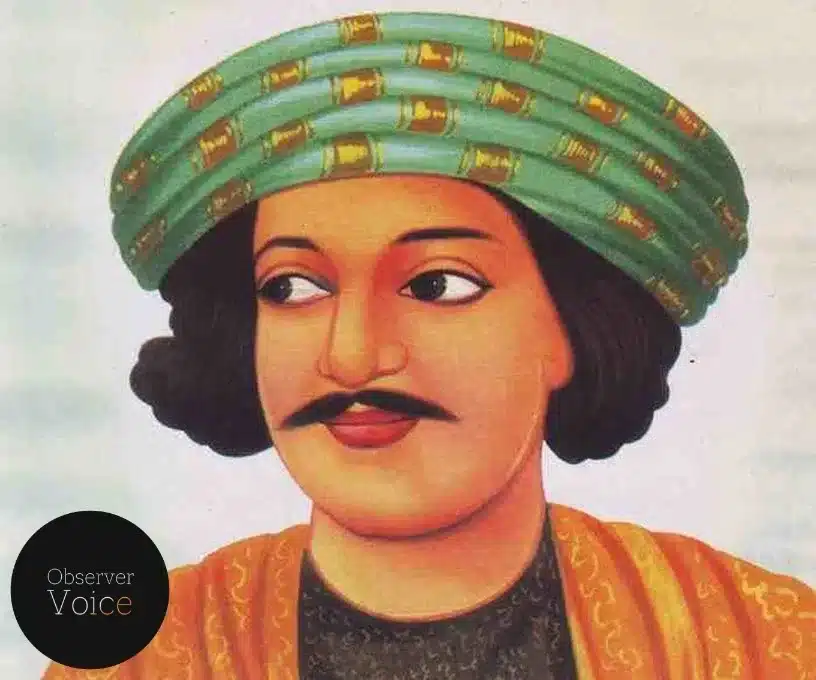Raja Ram Mohan Roy: Father of Modern India and Champion of Enlightenment

Raja Ram Mohan Roy (22 May 1772 – 27 September 1833), is called ‘the father of modern Indian society. He was the founder of the Brahmo Samaj, the originator of the Indian linguistic press, the leader of the mass awakening and social reform movement, and the father of the Renaissance era in Bengal.
Early Life
He was born on 22 May 1772, in Radhanagar, Bengal Presidency. He was born during the darkest time in Indian history. There were many socio-economic and political problems in the country, and there was a lot of chaos created by religions. After getting a basic education in Sanskrit and Bengali in the village school, he studied Persian and Arabic in a Madrasa in Patna. After that, he went to Kashi to learn the Vedas and Upanishads in Sanskrit. When he was 22, he learned English.
He got a job with the East India Company and became a revenue officer in 1809. He believed in Lord Vishnu and is credited with coining the term Hinduism. His brother died in 1812 and his widow was forced to burn herself too on his lit pyre. He tried his best to stop the evil from happening but failed miserably. He was deeply affected by this incident. Whenever he was in town, he’d visit crematoriums to watch out for people who would force women to commit sati at their husbands’ pyres. It took him a long time to convince people that sati wasn’t just meaningless but was also cruel. Because he believed the press could only disseminate important information to the people if it operated free from outer pressures.
In 1816, he set up an English school in Calcutta using his own money because he believed that education was necessary for enlightenment. He was so dedicated to uplifting mankind. During his time, the government only opened Sanskrit schools. He wanted to change it because he thought Indians needed to be educated in other subjects like Math, Geography, and Latin too. He founded the Brahmo Samaj in 1828, one of the most influential socio-religious institutions in modern India. The movement was very influential and didn’t discriminate against different religions, castes, or communities. After years of fighting against sati, Lord William Bentinck, Governor of the Bengal Presidency lands, officially banned it on 4 December 1829.
He was also a journalist who published in English, Hindi, Persian, and Bengali. His most popular journal, ‘Sambad Kaumudi,‘ covered socio-political topics that helped Indians rise above their current situation. He died on 27 September 1833, in Stapleton, Bristol, England.
Read More: 26 September: Remembering Dev Anand on
Observer Voice is the one stop site for National, International news, Sports, Editor’s Choice, Art/culture contents, Quotes and much more. We also cover historical contents. Historical contents includes World History, Indian History, and what happened today. The website also covers Entertainment across the India and World.

